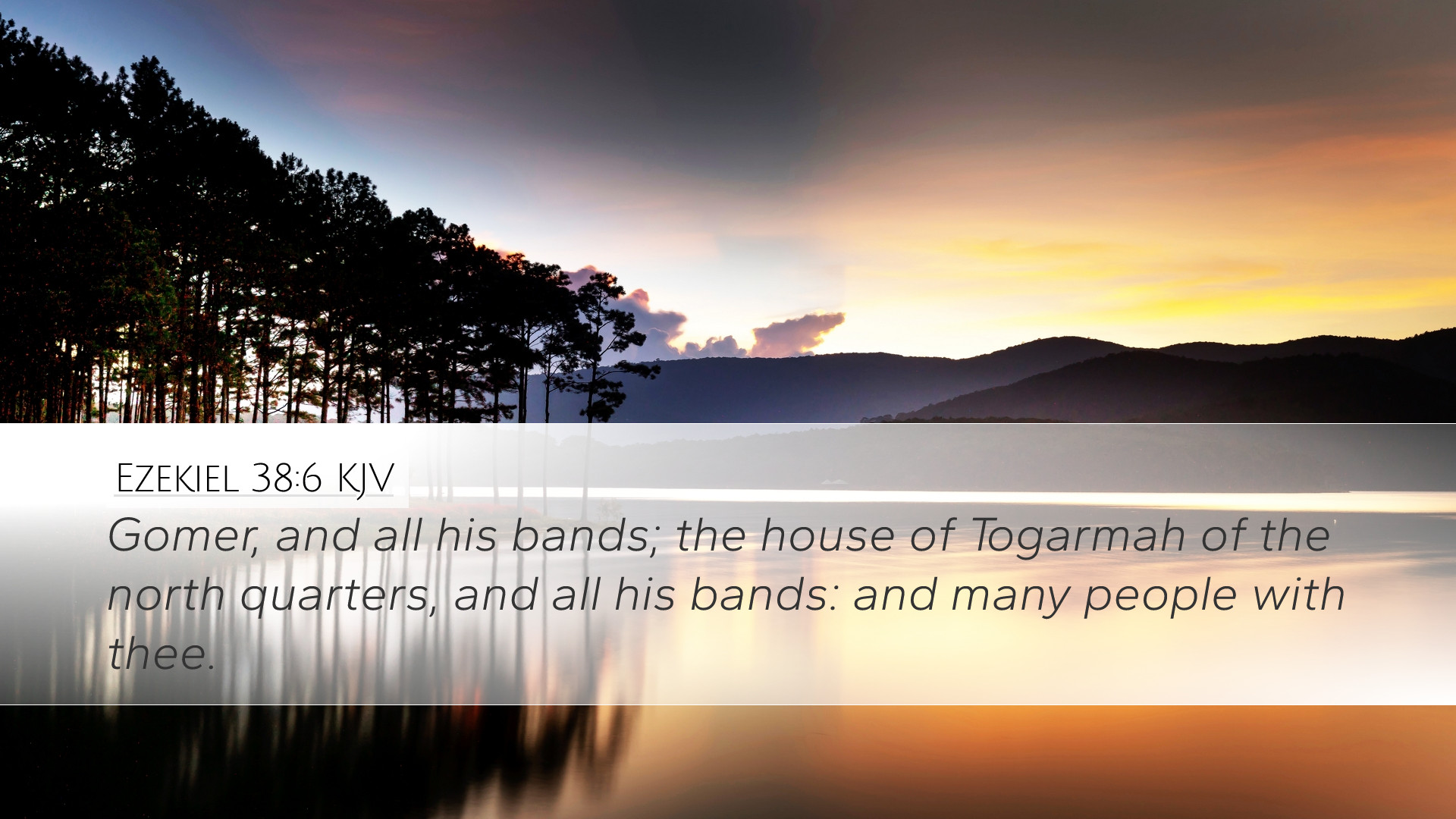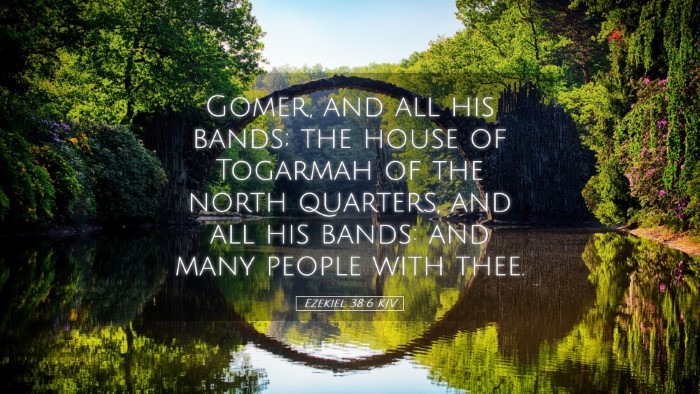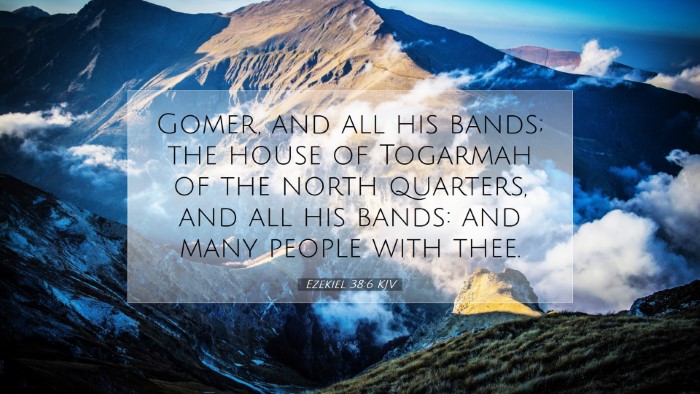Commentary on Ezekiel 38:6
Ezekiel 38:6 (KJV): "Gomer, and all his bands; the house of Togarmah of the north quarters, and all his bands: and many people with thee."
Contextual Background
The prophecy in Ezekiel 38 discusses the coming invasion of Israel by a massive coalition of nations, orchestrated by Gog, the leader from the land of Magog. This verse specifically identifies allies of Gog, namely Gomer and Togarmah, which point scholars to regions associated with historical nations that threatened Israel. Understanding these geopolitical dynamics is essential for grasping the full implications of this prophetic vision.
Insights from Commentaries
Matthew Henry's Commentary
Matthew Henry elaborates on the significance of these nations in the context of God's overarching sovereignty and the eventual triumph of Israel. He emphasizes the idea that these alliances embody the collective forces of evil arrayed against God's people. Henry remarks on how Gomer, believed to be the progenitor of the Gothic tribes, signifies those who would come against Israel, highlighting the spiritual battle that accompanies the physical manifestation of war. He notes:
"The enemies of the church may gather themselves together in great numbers, but they shall not prevail against her."
Albert Barnes' Notes on the Bible
Barnes provides a thorough historical analysis of Gomer and Togarmah, associating Gomer with the Celts and the regions of modern Turkey. He notes that Togarmah is often linked to a family of nations in the region of Armenia and central Asia. Barnes highlights how the inclusion of "many people" indicates the vastness of the coalition against Israel, but he emphasizes that such alliances do not occur outside of divine providence. He writes:
"The coalitions formed against the people of God are merely instruments in the hands of the Almighty, used for His purposes, which are ultimately for the good of His elect."
Adam Clarke's Commentary
Adam Clarke adds depth by suggesting that the names referenced in this verse are emblematic of a wider struggle between good and evil. Clarke identifies Gomer and Togarmah as representing powers that challenge God's authority but concludes by reassessing their theological significance. He argues that:
"The prophecy illustrates the certainty of God's judgment upon those who stand against Him, and His readiness to defend His chosen people."
Clarke emphasizes the eschatological implications of this conflict, noting that the alliances forged by Gog serve as a reminder of the trials that await the church and the ultimate victory of Christ at the end of times.
Theological Implications
This verse stands as a crucial reminder for pastors and theologians regarding the nature of spiritual warfare. The modern church may not encounter literal Gomer or Togarmah, but the symbols represent the ongoing conflict with worldly powers that oppose God's kingdom. The amalgamation of nations signifies not just physical adversaries, but spiritual entities in rebellion against divine authority.
Application for Believers
- Awareness of Spiritual Warfare: Believers must recognize the reality of opposition that manifests in various forms—cultural, political, and spiritual.
- Trust in Divine Sovereignty: As history reveals the transient nature of earthly kingdoms, Christians are encouraged to trust in God’s plan and His ultimate control over the nations.
- Call to Prayer and Vigilance: In light of impending conflicts, there is a heightened call to intercede for the church and seek resilience in faith amidst trials.
Conclusion
Ezekiel 38:6 serves as a profound warning and encouragement for God’s people. The prophetic insight regarding Gog, Gomer, and Togarmah calls for vigilance and preparedness without fear, as the culmination of this prophecy ultimately points to God's fidelity to His covenant people. The interpretative reflections from Henry, Barnes, and Clarke collectively uplift and provide deep theological insights valuable for pastors, students, and scholars alike as they navigate the complexities of faith in a world often hostile to divine truth.


